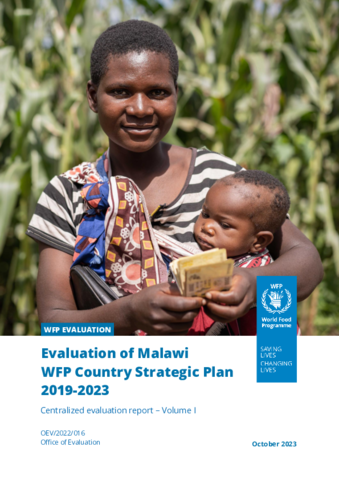
The evaluation of the Malawi country strategic plan (CSP) for the period 2019–2023 sought to generate evidence and learning to inform the development of the next CSP.
The evaluation covered CSP implementation between January 2019 and June 2022. It also considered data from 2018 to examine the development of the CSP, particularly its shifts from previous country planning. The evaluation design included gender equality and human rights dimensions.
The evaluation concluded that:
- WFP contributed to positive results under each strategic outcome, although progress was uneven across and within strategic outcomes. Despite WFP’s efforts on cost saving, resource mobilization and improved targeting, decreasing levels of donor contributions were detrimental to addressing growing needs. Work on protection, environmental and climate adaptation, and accountability to affected populations helped achieve results and gender transformative approaches were not consistently integrated.
- The integrated approach to programming helped reduce vulnerability since households could benefit from the combined effects of mutually reinforcing interventions. WFP’s resilience building approach helped position WFP along the humanitarian– development continuum, but it is still viewed primarily as an emergency responder. The intended shift to an enabling role was impeded by a deteriorating food security situation and challenges to the sustainability of country capacity strengthening outcomes.
- WFP played a leading role in evidence generation on food security and nutrition, and fostered an internal culture of evidence-informed decision making.
